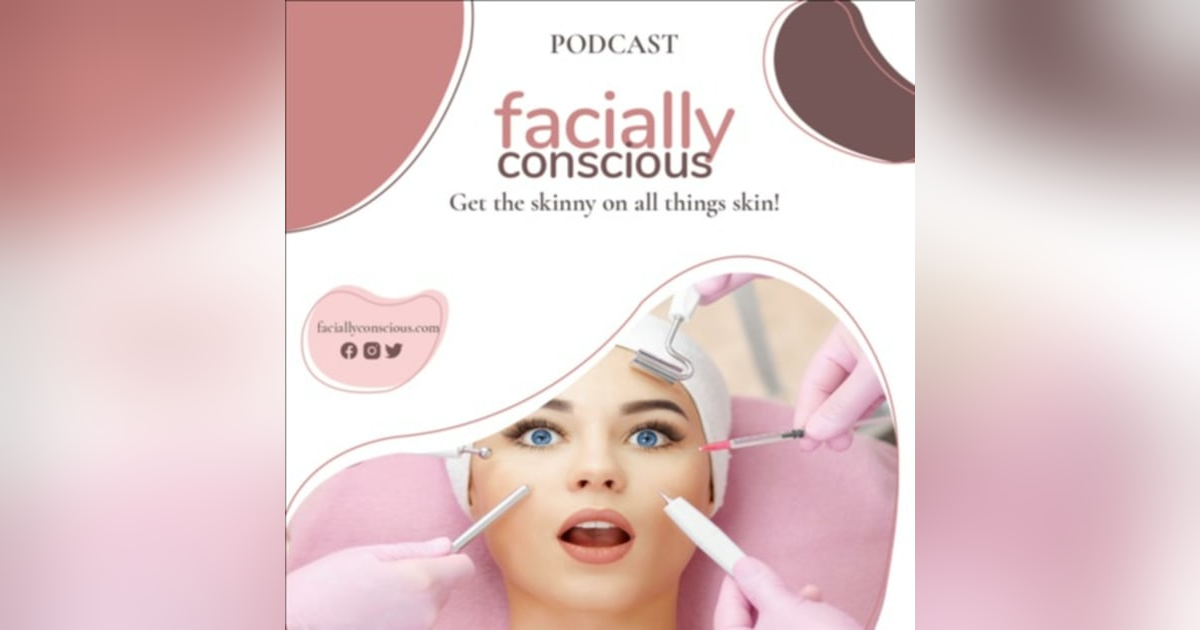Exploring the Magic of Exosomes in Skincare

Hey everyone! It's Trina, your go-to esthetician and skincare enthusiast.
Today, I’m excited to recap one of our most fascinating podcast episodes featuring Dr. Greg Maguire and Steve McGee from NeoGenesis. If you've been curious about the latest buzzword in skincare—exosomes—then you're in for a treat. Buckle up as I walk you through what exosomes are, why they matter, and how they can transform your skin.
What the Heck Are Exosomes Anyway?
Exosomes are like little delivery trucks that carry important information between cells. Imagine your body is a city, and the cells are houses. These houses need to communicate with each other, right? Enter exosomes: the trucks that bring mail (or, in this case, essential molecules like proteins and fats) from house to house. They help your skin cells talk to each other, delivering nutrients, repairing damage, and even encouraging the growth of new, healthier cells.
Dr. Maguire, one of the leading experts in this field, explained that exosomes are naturally found in animals and plants. You might even consume them without realizing it—like when drinking grape juice! Those grapes' exosomes feed your gut and support your overall health. So yes, exosomes are everywhere in biology, including your skincare routine.
Why Should You Care About Exosomes?
If you’re like me and always on the hunt for the latest and greatest in skincare, then exosomes should be on your radar. These tiny bubbles are incredibly powerful. They're not just delivering hydration or plumping up your skin—they’re helping your skin heal and regenerate. As Dr. Maguire said, exosomes from the right sources can reduce inflammation, boost collagen production, and even help fight aging.
In the podcast, we discussed how exosomes are a natural way to repair damage from environmental stress, poor diet, and even aging. For example, my co-host Julie and I use exosomes in our daily skincare routine. I apply mine in the morning (along with my trusty sea salt spritz), while Julie prefers to use hers at night. Whether you're a morning or night person, exosomes work to heal the skin, fight wrinkles, and keep your complexion glowing.
Addressing Common Concerns
One thing that often comes up when we talk about exosomes is their safety. There’s a lot of misinformation floating around—everything from "they come from unsafe sources" to "they could cause cancer." Yikes, right? That’s why it’s essential to know where your exosomes come from and to trust the brands that are transparent about their sourcing and testing.
According to Dr. Maguire, exosomes can come from various sources, but not all are created equal. The ones used in NeoGenesis products come from human skin cells, which are tested rigorously to ensure safety. They even undergo studies to confirm they don’t induce cancer or other harmful effects. So, if you're using a high-quality product like NeoGenesis, you can feel confident knowing it's backed by science.
**I generally avoid endorsing specific brands because there are so many excellent options, and I choose not to accept sponsorships to maintain my credibility and earn our listeners' trust. However, when it comes to safety in emerging technologies—and with the FDA still working on regulations for this advanced field—I feel it's important to share this trustworthy company with you.
Exosomes vs. Other Skincare Ingredients
You might wonder, “Can I use exosomes with other skincare products like retinol or growth factors?” Great question! We tackled this during the podcast, and the short answer is yes, but be careful. Exosomes work harmoniously with other ingredients, but layering too many potent products—like growth factors—can sometimes be too much for your skin.
Dr. Maguire mentioned that while exosomes are incredible at helping the skin heal and rejuvenate, you don’t need to go overboard by using multiple products that do the same thing. In fact, some growth factor-heavy products can even harm your skin if used excessively. That’s why I always recommend consulting with a professional (like me!) before combining treatments.
When Should You Start Using Exosomes?
Now, let’s talk timing. When should you start incorporating exosomes into your routine? While exosomes can benefit people of all ages, starting in your 20s might be ideal. This is when you begin seeing early signs of aging and skin damage. Plus, if you’re prone to partying (we’ve all been there!), your skin might need some extra love to repair the damage from poor diet, lack of sleep, and environmental stress.
Exosomes are also great for treating specific concerns like acne or eczema. Steve McGee brought up that exosomes can help balance out your skin, making them a fantastic option for teens dealing with breakouts or younger people battling skin conditions. So, don’t think exosomes are just for aging skin—they’re a multi-tasking powerhouse!
Exosomes and Hair Growth?
If you thought exosomes were just for your face, think again! They’re making waves in hair restoration, too. During the podcast, Dr. Maguire shared that exosomes are used in hair serums to help grow hair and restore its natural color. The exosomes for hair growth include those from the skin and those inside the hair follicle. Steve, for example, used their hair thickening serum and saw his hair grow back darker and thicker—pretty amazing, right?
These hair treatments target the hair follicles and encourage them to produce healthier, stronger hair. So, if you’re experiencing thinning or gray hair, exosomes might just be your next hair care secret weapon.
Buyer Beware: How to Choose the Right Exosome Product
Before you run out and grab the first exosome product you see, it’s important to be cautious. As with any new trend, not all exosome products are created equally. Some companies may use subpar sources, like bone marrow, which can carry risks of inflammation or even cancer signals. Dr. Maguire stressed that choosing products made in the U.S. that use exosomes from safe, skin-derived sources, like fibroblast-conditioned media is essential.
So, how can you ensure you're getting a good product? Look for brands that are transparent about their testing and sourcing. Stick to U.S.-made products, as they follow stricter safety guidelines. As always, consult with your dermatologist or esthetician to get personalized recommendations.
Wrapping It Up
Exosomes are an exciting development in the world of skincare. They offer a natural and effective way to repair and rejuvenate the skin, combat aging, and even promote hair growth. Whether you're in your 20s, dealing with acne, or looking to turn back the clock, exosomes could be a game-changer for your routine. Research, choose high-quality products, and consult a skin care professional for the best results.
If you’re ready to incorporate exosomes into your skincare regimen, look for products like NeoGenesis, which prioritize safety, efficacy, and transparency. As always, we’re here to help guide you through this skincare journey!
Until next time, stay glowing!
Trina Renea, L.E., Cohost, Facially Conscious
I hope you enjoyed this deep dive into exosomes. Feel free to reach out if you have any questions or want to hear more about specific skincare topics. I’m always here to help you make informed, glowing choices for your skin.









